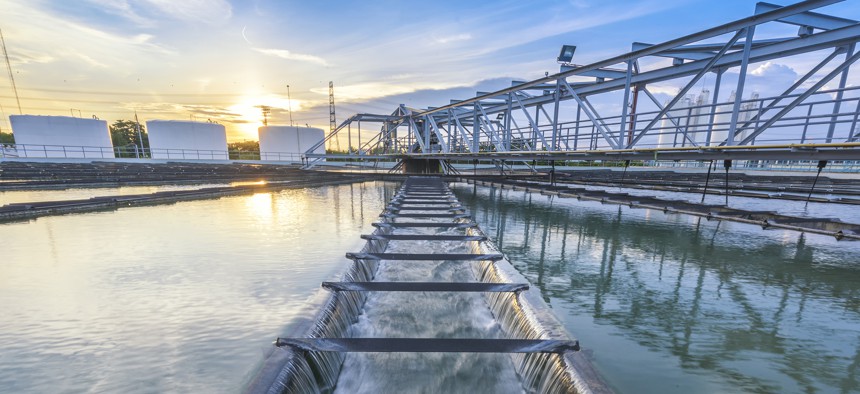For-profit Water Infrastructure Should Not Get Taxpayer Subsidies

wastewater treatment plant istock.com/tuachanwatthana
COMMENTARY | Most federal infrastructure proposals allow subsidies to flow to private water corporations. This amounts to a misuse of public funds.
In the context of water infrastructure, various forms of privatization—whether that means public-private partnerships, full privatization or private equity—are promoted as a solution to a range of problems. And most federal infrastructure proposals typically allow federal subsidies (redistributed taxpayers’ monies) to flow to private for-profits corporations.
This amounts to a misuse of public funds. Private water infrastructure (profit-generating companies or companies paying profits to shareholders/investors) should not be eligible for federal taxpayer subsidies. That money should be reserved only for public purposes in subsidizing the public’s water infrastructure.
Private water companies like to argue that they provide the same service as public water utilities, which are essentially a form of local government. However, they have distinctly different missions; one is structured to serve the public interest, the other exists to deliver profits to shareholders. Any federal subsidy provided to a corporate water utility subsidizes that company’s profits.
For privatized water service, empirical data suggest that private water companies have higher rates, which is what one would expect. Private water companies are legally allowed to build in a percentage profit margin into their rate structures, which are regulated by the state public utilities commission as opposed to the local officials elected by residents paying those increased rates.
Because their mission is to maximize shareholder profits, private water companies can choose to avoid the most economically distressed, and thus unprofitable, communities. They have even admitted that high-cost impoverished rural areas “make a case for public systems.” Community-owned water utilities exist only to satisfy a public social need, irrespective of profit, and remain directly accountable to the public. These are the systems that we should prioritize as we rebuild the country’s infrastructure for the public’s benefit.
No Need for New Partnerships With Corporate Interests
There is no special characteristic of a private water company that allows it to provide enhanced drinking water safety or price—and the companies don’t even pretend to suggest as much. The public should know that they are the guarantor of the safety of their drinking water through their local government. All local governments should insist on laws that require a public referendum before a community sells off its public infrastructure.
The majority of public water systems were formed and subsidized with public funds, and in most states, a sale of these water systems allows private companies to acquire these publicly funded systems with no vote by the users to approve the sale. Such a process is historically inconsistent with the formation and regulation of public utilities. The USDA requires a vote of the residents of a proposed water system and a court hearing as a formation requirement.
Allowing the federal government to subsidize the private sector would also have the effect of redirecting federal subsidies from the projects with the greatest need (economical, public health and environmental) to the projects with less need. There are currently not enough federal subsidies to meet the needs of public water infrastructure; let’s not open up programs to allow for the subsidies to flow to private interests.
Mary Grant is the Public Water for All campaign director at Food & Water Watch. Mike Keegan is an analyst with the National Rural Water Association. Elizabeth M. Dietzmann is an attorney who consults with small water and wastewater systems on legal and operational issues.
NEXT STORY: Nowhere Is Ready for This Heat





